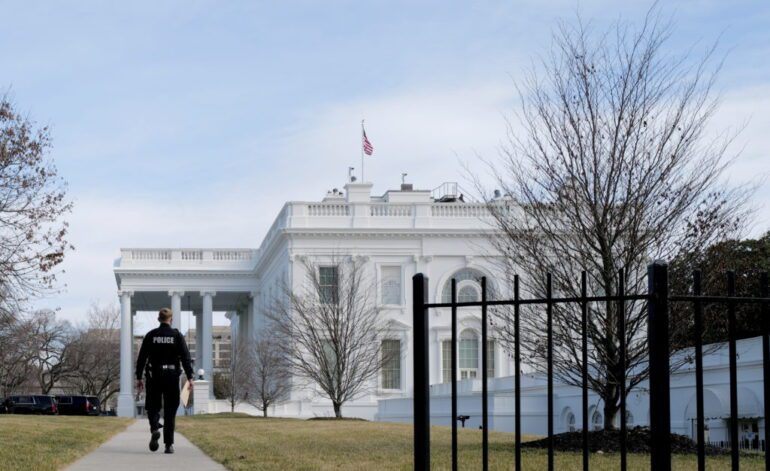TL;DR:
- Conservatives are contesting President Biden’s AI executive order just ahead of its major deadlines.
- Biden’s order uses emergency powers under the Defense Production Act to gather information from tech companies on advanced AI projects.
- Critics argue that this constitutes executive overreach, with no imminent AI-related national emergency.
- Tech lobbyists and GOP lawmakers are opposing the order, fearing stifled innovation and legal challenges.
- The Americans for Prosperity Foundation has filed lawsuits and FOIA requests against the Commerce Department.
- The Supreme Court’s consideration of a related lawsuit may impact the AI executive order’s reliance on federal agencies.
Main AI News:
In the latest developments in the realm of artificial intelligence (AI), conservative forces are marshaling their efforts to challenge President Joe Biden’s executive order on the subject. This executive order, which utilizes emergency powers, has been a point of contention among tech industry advocates and GOP lawmakers. The directive compels tech companies to divulge information regarding advanced AI projects with significant computing power to the Commerce Department.
President Biden justifies the use of the Defense Production Act (DPA) on the grounds of national security concerns posed by AI. However, critics argue that such a move constitutes executive overreach and that there is no imminent national emergency in the AI domain.
Senator Mike Rounds, a South Dakota Republican, expressed his reservations, stating that the DPA was not originally intended for regulating AI. He, along with Senate Majority Leader Chuck Schumer, has been involved in crafting AI legislation, which contrasts with the President’s approach.
This pushback illustrates the potential for disagreements over AI regulation to become entangled with broader political disputes related to the oversight of private enterprises. Lawmakers are now deliberating the pace of AI regulation and contemplating alterations to the DPA. A group associated with the conservative Koch network has inundated the Commerce Department with information requests and filed a lawsuit. Tech lobbyists, on their part, have hinted at possible legal challenges once the Commerce Department begins implementing its newfound authority over AI at the end of January.
Biden’s executive order utilizes the DPA to empower the Commerce Department to establish guidelines and collect reports from tech companies involved in training and testing advanced AI models. This application of the Defense Production Act is unconventional but has precedents in past administrations, such as Donald Trump’s and Biden’s use of the law to expedite the federal response to the Covid-19 pandemic.
Tech lobbyists have strongly opposed the new reporting requirements, contending that they will impede innovation in the AI sector. Legal challenges are anticipated, with critics arguing that this constitutes an abuse of executive authority.
Republican lawmakers are also taking action against the DPA, considering reforms before its renewal next year. Senate Republican Whip John Thune is collaborating with other Republican lawmakers to limit the DPA’s ability to establish new AI testing and training protocols for the tech industry.
Meanwhile, the Americans for Prosperity Foundation, a nonprofit linked to the Koch brothers, has filed Freedom of Information Act requests and a lawsuit against the Commerce Department and its National Institute of Standards and Technology, seeking agency records related to the DPA and artificial intelligence. The group insists on congressional reform to prevent what they perceive as the White House’s “abuse of the DPA.”
In a broader context, the White House’s AI strategy is encountering challenges from the Supreme Court, which is deliberating a lawsuit driven by another Koch-affiliated group. While the case pertains to fishing regulations, its outcome could have far-reaching consequences, potentially impacting the AI executive order’s reliance on various federal agencies to fulfill its regulatory goals.
Congressional Democrats largely support the Biden administration’s characterization of advanced AI as a national emergency. Nevertheless, they acknowledge that using the DPA to justify industry reporting requirements may lead to complications.
As Congress struggles to pass tech regulations on issues such as data privacy and online child safety, the DPA emerges as a unique avenue for Washington to address AI-related concerns. With this contentious landscape in mind, stakeholders on all sides of the debate are making their voices heard, setting the stage for further developments in the AI regulatory arena.
Conclusion:
The ongoing battle surrounding President Biden’s AI executive order reflects the broader political and regulatory challenges facing the AI industry. Conservative opposition, concerns about executive overreach, and potential legal battles could impact the pace of AI innovation and regulation. The outcome of these disputes will significantly shape the market’s regulatory landscape and business strategies within the AI sector.

